Six Months of Statements: A Small Difference With Big Results
By FinancialDocsProvider Editorial Team • Published: August 2025
Last updated: August 2025
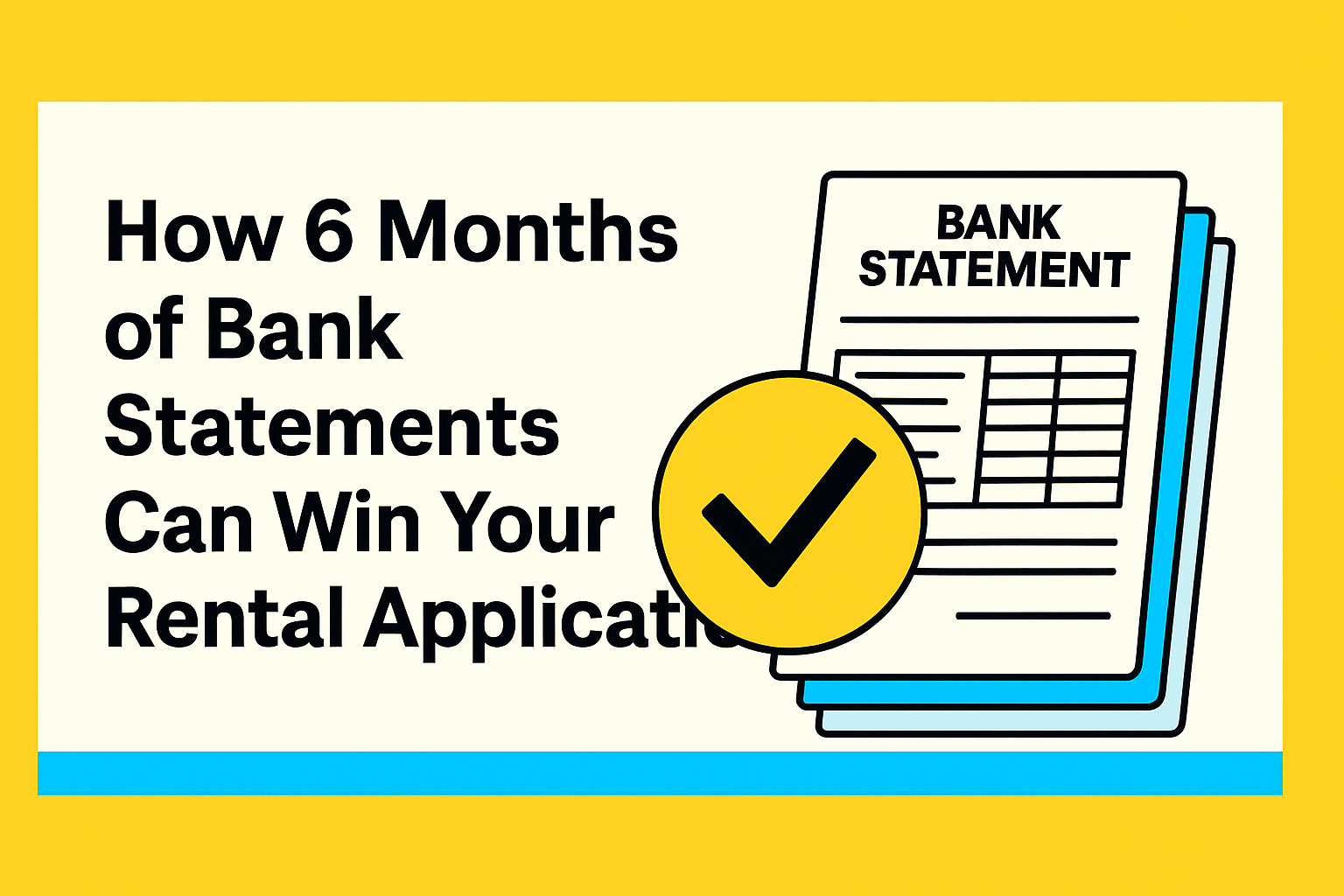
When landlords are choosing between qualified applicants, a well‑organized set of bank statements for rental application review can tilt the scales in your favor. Six months offers a fuller, more trustworthy view of income rhythm, savings behavior, and cash‑flow stability in the US, UK, and Canada.
Most property managers aren’t trying to pry; they’re trying to reduce risk. They look for consistent deposits, sustainable spending, and the ability to handle the rent plus ordinary expenses. With a clean six‑month packet, you remove guesswork and make approval easier.
At FinancialDocsProvider.com, we help you assemble, format, and present your documents clearly and lawfully. We make statements easy to read, we redact sensitive data where appropriate, and we never alter facts. Our role is editorial and organizational, not fabrication.
Related Entities & Terms
- Proof of income, affordability checks, tenant referencing
- W‑2, 1099 (US); T4, Notice of Assessment (NOA, Canada)
- Pay stubs / payslips; employer letter; offer letter
- Open banking / read‑only account aggregation
- CFPB (US), FTC (US), IRS (US)
- GOV.UK, FCA (UK)
- FCAC (Canada), CRA (Canada)
- Data minimization, redaction, personally identifiable information (PII)
- Anti‑fraud checks, bank verification micro‑deposits
- NSF/overdraft entries, chargebacks, returned items
- Rent‑to‑income ratio, savings buffer, reserve months
Law & Compliance Basics: Formatting vs. Falsification
Across the US, UK, and Canada, landlords and agents commonly request recent statements to confirm income and affordability. Reasonable privacy expectations apply, and you can often redact non‑essential details. What you may not do: change facts—balances, dates, payees, or deposit amounts.
United States: What to Expect
US renters may deal with brokers or large property managers who follow standardized affordability checks. If you’re concerned about what’s appropriate, consult consumer guidance from the Consumer Financial Protection Bureau (CFPB). It emphasizes fair, transparent practices. We align with that spirit: lawful redaction and clear presentation are acceptable; falsification is not.
United Kingdom: What to Expect
In the UK, referencing agencies often assess affordability using payslips and statements. Government guidance for private renting is published on GOV.UK. Again, keep to data minimization: show what’s needed, hide what isn’t, and never alter facts.
Canada: What to Expect
Canadian renters may use T4s and the Canada Revenue Agency’s Notice of Assessment to support income claims. For consumer guidance on financial documents and privacy expectations, see the Financial Consumer Agency of Canada (FCAC) via canada.ca. As in other markets, redaction that preserves truth is lawful; altering data is not.
Allowed Edits: Redaction & Readability That Keep Facts Intact
Your goal is to help the reviewer see true information faster. The edits below improve legibility without touching the facts.
Redact Only What’s Sensitive
- Mask account numbers beyond the last 4 digits.
- Hide unrelated merchant names (e.g., health‑care providers) when not required.
- Leave all transaction amounts, dates, and running balances untouched.
Fix Broken Exports
- Convert image‑only scans into searchable PDFs using OCR.
- Rotate sideways pages; remove blank pages; standardize page size.
- Combine monthly statements in order, January → June or the most recent six months.
Organize for Fast Review
- Create a one‑page cover sheet with your name, property address, and a summary table of the six months (month, starting/ending balance).
- Add bookmarks: “Month 1,” “Month 2,” etc., plus “Verification Items” for pay stubs or T4/NOA.
- Include a brief note if you changed banks during the period, so the reviewer expects two accounts.
Accessibility Improvements
- Set document language and title metadata.
- Tag headings and tables so screen readers can navigate.
- Ensure sufficient contrast on any added labels or highlights.
Illegal Alterations: Facts Must Never Change
Any attempt to alter facts can be treated as misrepresentation—or fraud. The following are off‑limits:
- Editing or fabricating balances, deposits, or payee names
- Changing dates to “move” a late payment out of the six‑month window
- Deleting negative entries like overdrafts, NSFs, chargebacks, or returned items
- Forging bank logos or “verified” marks
Consequences can include immediate denial, blacklisting with local agents, and potential legal exposure. Keep everything truthful. If something looks unusual, explain it with a brief cover note rather than trying to hide it.
Why bank statements for rental application Reviews Matter + Practical Use Cases
Six months of statements show reliability patterns that 30 days can’t. Landlords want to see that your income sustains rent plus normal living costs and that you maintain a reasonable buffer. Here’s how the six‑month view helps different applicants.
W‑2 / Employee Applicants (US analogues: W‑2; UK: payslips; CA: T4)
- Pair statements with pay stubs/payslips (last 2–3) to confirm net deposit amounts match take‑home pay.
- If paid biweekly, a six‑month window shows three pay cycles per month in “five‑Friday” months—useful for affordability analysis.
- Add an employer letter or offer letter if you have a new job; clarify any start date gaps in a cover note.
Self‑Employed, Freelancers, and Contractors (1099, Invoices, P&L, NOA)
- Show business income flowing into a personal account or provide both personal and business statements.
- Include a brief year‑to‑date P&L and invoices matching larger deposits.
- Attach your 1099s (US), T4/NOA (Canada), or UK self‑assessment summaries as available.
- Explain seasonal spikes or irregular months in a concise cover note.
Mini‑Scenario 1: First‑Time Renter with Savings
You’re a recent graduate with two months on the job. Your statements show limited income history but a strong savings balance and a family gift. Present six months to highlight reserves and add a brief note explaining the gift deposit. That context reassures the reviewer.
Mini‑Scenario 2: Gig‑Worker with Variable Income
Your deposits vary week to week. Six months demonstrate overall stability even if individual weeks fluctuate. Add a simple chart on the cover sheet showing total monthly deposits for each of the six months and include top clients on invoices.
Mini‑Scenario 3: Relocating Professional
You’re moving from another city or country and starting a new role next month. Provide six months of your current account, the signed offer letter, and proof of relocation stipend if applicable. Note any cross‑border banking that might explain currency conversions or transfer fees.
Open Banking and Read‑Only Access
Some landlords or referencing services use read‑only “open banking” links to verify income quickly. If offered, this can reduce the amount of PDF paperwork. Still keep a clean six‑month PDF packet ready: some property managers require it for recordkeeping.
How We Work: Editorial, Not Fabrication
Our service is designed to make real information easy to trust. Here’s our standard flow.
1) Intake & Scope
- We gather your source files (PDFs/CSVs) through a secure channel.
- We confirm the exact audience (landlord, agent, or referencing service) and any page limits.
2) Reconciliation & Completeness Check
- We check date coverage to ensure a continuous six‑month window.
- We verify that balances roll forward correctly from month to month.
- We identify missing statements or pages and flag them for you to supply.
3) Formatting & Organization
- We create a professional cover sheet and contents page.
- We apply lawful redactions and fix broken exports (OCR, rotation, page size).
- We label and bookmark each month for fast navigation.
4) Quality Controls & Delivery
- Final checks ensure no amounts, dates, or parties were changed.
- We deliver a single, organized PDF optimized for quick review.
Want to understand the scope for proof of income editing or bank statement formatting? Review our pricing, about our process, or contact our team.
Boundary statement: We never alter factual data. If your statements contain issues, we help you present them transparently and add explanatory context where appropriate.
Six‑Month Submission Checklist
Use this step‑by‑step list to assemble your packet in under an hour.
A) Gather & Verify
- Collect the most recent six months from your bank portal as native PDFs if possible.
- Confirm page counts match your provider’s statement index.
- Check that each month’s ending balance equals the next month’s starting balance.
- If you changed banks, gather both accounts covering the full window.
B) Add Supporting Proof
- Employees: add last 2–3 pay stubs/payslips and any offer letter.
- Self‑employed: add invoices, 1099s (US) or T4/NOA (CA), and a one‑page P&L.
- Relocating: add relocation letter or stipend details if available.
C) Redact & Format (Lawfully)
- Mask account numbers beyond the last four digits; leave amounts and dates unchanged.
- Hide sensitive merchants not required for review.
- OCR the file; rotate sideways pages; standardize page size.
D) Package & Label
- Create a cover sheet showing your name, property address, and a summary table by month.
- Add bookmarks for each month; add “Supporting Proof.”
- Save as
Lastname_Firstname_6mo_BankStatements_PropertyAddress.pdf.
E) Explain Unusual Items
- Briefly note any large gift deposits, reimbursements, or bank changes.
- Point to the page number(s) where those items appear.
Red Flags That Trigger Rejections (and How to Avoid Them)
- Gaps in coverage. Missing a month breaks the narrative—supply all six and label them clearly.
- Mismatched names. Accounts must match the applicant’s name or include a documented explanation (e.g., joint account).
- Unexplained large cash deposits. Provide invoices, a gift letter, or employer reimbursement notes.
- Heavy overdrafts/NSFs with no context. Don’t delete them; add context (new job start, temporary expense) and show recent improvement.
- Unsearchable scans. OCR the file so reviewers can find dates and amounts quickly.
- Out‑of‑order pages. Keep months in sequence; bookmark each month.
- Excessive redaction. Redact surgically; over‑redacting looks like hiding and slows reviews.
- Altering facts. Any change to amounts, dates, or payees is unacceptable and risky.
Helpful Resources (Official & Internal)
For general consumer guidance and expectations, consult these official sites:
- Consumer Financial Protection Bureau (US)
- GOV.UK: Renting Guidance (UK)
- Financial Consumer Agency of Canada (FCAC)
Need hands‑on help preparing a compliant packet? Explore our internal guides and services:
- Proof of income editing (what we do and don’t do)
- Bank statement formatting & pricing
- About our process
- Contact our team
FAQs
Do I really need a full six months?
Many landlords request three months, but six provides a stronger, more reliable picture—especially for variable income. If the listing specifies three, still consider preparing six. You can offer three by default and keep six ready in case they ask.
What can I safely redact?
You may mask account numbers beyond the last four digits and hide sensitive merchants not needed for screening. Do not change or hide amounts, dates, or running balances. When in doubt, provide a short note explaining what was redacted and why.
What if my balance sometimes goes negative?
Don’t delete those lines. Add context in your cover note and show recent improvement. Pair statements with a job offer letter or extra savings to demonstrate affordability going forward.
How do self‑employed applicants package documents?
Include six months of statements, key invoices, a simple P&L, and 1099s (US) or T4/NOA (Canada). Briefly describe seasonal patterns in income. Clear labeling helps reviewers verify deposits quickly.
Is open banking access better than PDFs?
Open banking links can speed verification, but many property managers still keep PDFs for their records. Prepare a clean six‑month packet either way, then offer read‑only access if asked.


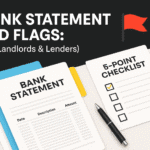
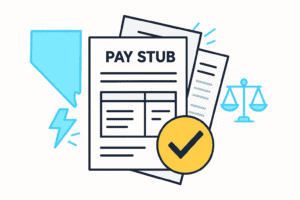

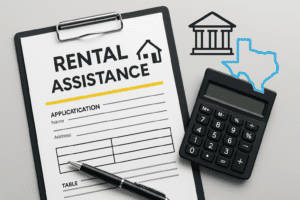
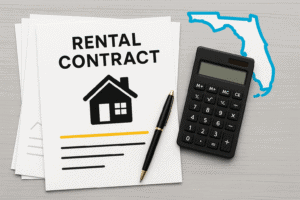

Add comment